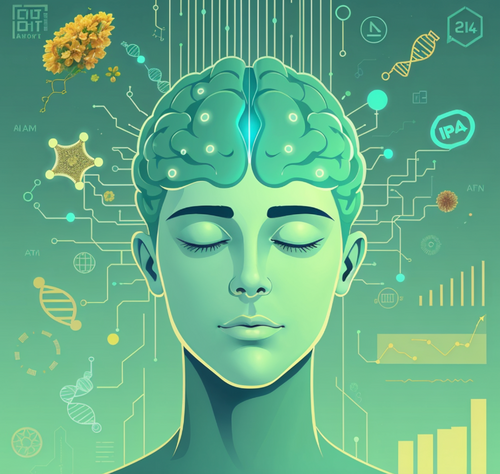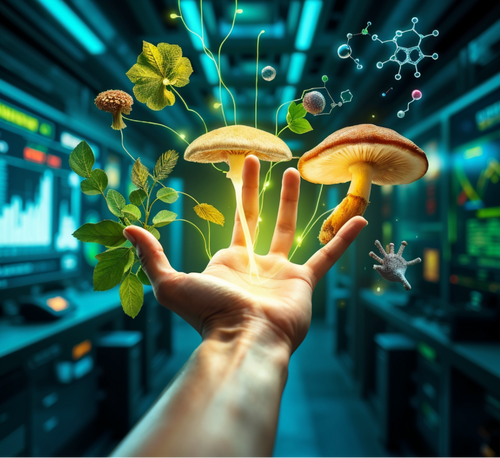
09 Sep Nootropics from Mind Lab
Editor’s note: Please remember the products described below are not FDA tested or approved. The use of nootropics can cause unpredictable and potentially serious side effects, including addiction. They should not be used in any form should be used while pregnant, nursing or planning to become pregnant. Be sure to avoid driving or any activity which requires mental alertness.
It is also important to recognized that these products are not legal in all jurisdictions.
Exploring the Science Behind Nootropics from Mind Lab: How Cognitive Enhancers May Improve Mental Performance

Welcome to the intriguing world of nootropics, where the quest for enhancing mental performance is turning heads and sparking curiosity. Known as ‘smart drugs’ or ‘cognitive enhancers,’ nootropics have been gaining a reputation for their potential to boost brainpower. From students cramming for exams to professionals looking to optimize their mental agility, the allure of nootropics spans a broad audience. Mind Lab Pro®, is a prominent player in the nootropic landscape. As we delve deeper into the science and substance behind Mind Lab Pro® and other nootropics, let’s explore how these fascinating compounds promise to elevate our mental processes, potentially transforming how we think, learn, and solve problems.
Understanding Nootropics
Nootropics are an intriguing class of substances that spark quite the debate in the realms of cognitive enhancement. But what exactly are they? Nootropics are compounds that potentially enhance mental functions such as memory, motivation, concentration, and attention. Their appeal spans from natural remedies to lab-engineered compounds, categorized mainly into three types: natural nootropics, synthetic agents, and nutraceuticals.
Natural nootropics include herbs and plant extracts like Ginkgo biloba and Bacopa Monnieri, which have been used for centuries in traditional medicine for their cognitive benefits. Synthetic agents, like the well-known Piracetam, are manufactured in labs and often have more immediate effects. Nutraceuticals blend the line between food-derived nutrients and supplements, offering cognitive enhancements with added health benefits.
The concept of nootropics isn’t new, though its popularity might seem so. The term was coined by Romanian psychologist and chemist Corneliu E. Giurgea in 1972 after he synthesized Piracetam, which marked a significant milestone in nootropic research. Piracetam opened the floodgates for the development of new synthetic nootropics, setting the foundation for a new category of cognitive enhancers that we continue to explore and expand upon today. This historical milestone underscores the potential of nootropics to boost brain power and the enduring quest to enhance human capabilities through science.
Mechanisms of Action
Diving into how nootropics work is like exploring a complex map of the human brain’s biochemistry. These cognitive enhancers interact with the brain’s intricate systems in several transformative ways, primarily through neurotransmitter modulation. Neurotransmitters are the brain’s chemical messengers, and nootropics tweak their levels hoping to boost cognitive functions. For instance, some nootropics increase acetylcholine, crucial for memory and learning, while others may boost dopamine and serotonin, which influence motivation, pleasure, and mood. These adjustments may help enhance focus, memory retention, and emotional balance, making everyday mental tasks easier.
Nootropics may also contribute to brain health through neuroprotection and neuroplasticity. Nootropics from Mind Lab, for example, include compounds that may protect the brain from damage while promoting the growth and repair of neural connections, supporting long-term cognitive health.
Substances like Lion’s Mane Mushroom are notable for their potential for neuroprotective properties.
Moreover, some nootropics enhance brain energy metabolism, ensuring our brain cells work efficiently. This process is vital because the brain is a massive energy consumer despite its small size relative to the body. Enhancing its metabolism may lead to better mental stamina and clarity. Additionally, these substances help reduce oxidative stress—a type of damage associated with aging and various neurodegenerative diseases. By countering this stress, nootropics not only improve current brain function but may also help maintain it over time.
Regarding the scientific backing of nootropics, the landscape is as vast as it is varied.
L-theanine, commonly found in green tea, is nootropic that has received attention for its ability to promote relaxation without drowsiness, thereby enhancing alertness and attention in tandem with caffeine. The synergy between L-theanine and caffeine, in particular, is one of the most popular discussions in nootropic circles, praised for its ability to boost cognitive performance more effectively than either compound alone.
Despite these promising findings, the overall body of research on nootropics presents mixed results. While some studies affirm the cognitive-enhancing properties of these substances, others suggest minimal or no effects, pointing to the need for more rigorously designed investigations. This discrepancy in research outcomes highlights the complexity of studying cognitive enhancements and underscores the necessity for more comprehensive, long-term studies. Such research would help validate the claims made by nootropic proponents and ensure that these supplements deliver on their promises safely and effectively.
Potential Benefits
The allure of nootropics largely stems from their potential to enhance various aspects of cognitive function. For starters, some users report improved memory capabilities, which is may be beneficial for students and professionals who need to retain vast amounts of information. Enhanced focus and better learning capabilities are also significant draws, enabling more efficient study sessions and productivity at work. Beyond memory and focus, nootropics are sought after for their ability to facilitate deeper concentration and quicker thinking, making complex tasks seem more manageable.
The psychological benefits of nootropics may extend to mood regulation and stress reduction, contributing to overall mental well-being. Substances like Rhodiola Rosea and L-Theanine may have calming effects, which may help manage anxiety and support emotional stability. This makes nootropics appealing not only for their brain-boosting effects but also for their potential to improve quality of life by enhancing one’s mental state.
Safety and Legal Aspects

While the benefits of nootropics may be significant, it’s crucial to approach their use with caution due to possible side effects. Common issues include headaches, insomnia, and gastrointestinal discomfort, which often result from excessive dosages or sensitivities to specific ingredients. Proper dosing is essential to minimize risks and maximize the cognitive benefits of these substances.
The FDA has not tested or warranted the safety and/or efficacy of these products.
On the legal front, the status of various nootropics can vary widely. Some, like caffeine and L-Theanine, are widely available and legal, while others, such as Modafinil, are regulated in many countries and may require a prescription. To ensure safe and legal usage, compliance with local regulations and understanding the legal framework surrounding these substances are crucial for consumers and providers.
Choosing the Right Nootropic
Selecting the right nootropic requires careful consideration of your specific cognitive goals and personal health conditions. Are you looking to enhance memory, improve concentration, or reduce stress? Determining your goals may help you select the nootropic that best meets your requirements. Furthermore, take into account any current medical issues or prescription drugs that can interact with nootropic supplements. As nootropics’ safety and effectiveness might differ widely, it is imperative to speak with a healthcare provider before starting any regimen. This is a crucial step to make sure the nootropic will actually help you achieve your cognitive enhancement goals and to ensure safety.
Conclusion
Throughout this exploration of nootropics, we’ve uncovered how these cognitive enhancers may potentially revolutionize our mental capabilities—enhancing memory, focus, and learning abilities while also offering psychological benefits like mood regulation and stress reduction. However, the journey into the world of nootropics must be navigated with caution, respecting proper dosing and legal guidelines. The future of cognitive enhancement technologies holds great promise, but responsible use remains paramount to harnessing their full potential safely and effectively. As we continue to advance our understanding and application of these substances, the prospects for enhanced mental acuity and well-being are truly exciting.
The information on MedicalResearch.com is provided for educational purposes only, and is in no way intended to diagnose, cure, or treat any medical or other condition.
Some links may be sponsored. Products above are not warranted or endorsed.
Always seek the advice of your physician or other qualified health and ask your doctor any questions you may have regarding a medical condition. In addition to all other limitations and disclaimers in this agreement, service provider and its third party providers disclaim any liability or loss in connection with the content provided on this website
Last Updated on September 10, 2024 by Marie Benz MD FAAD
